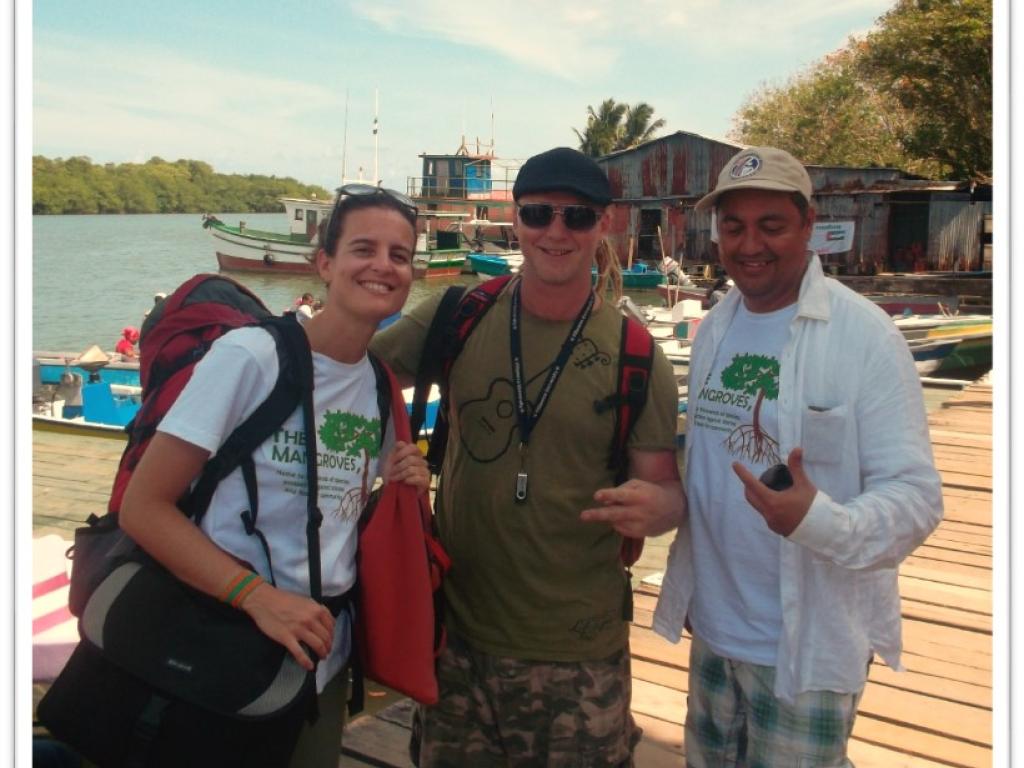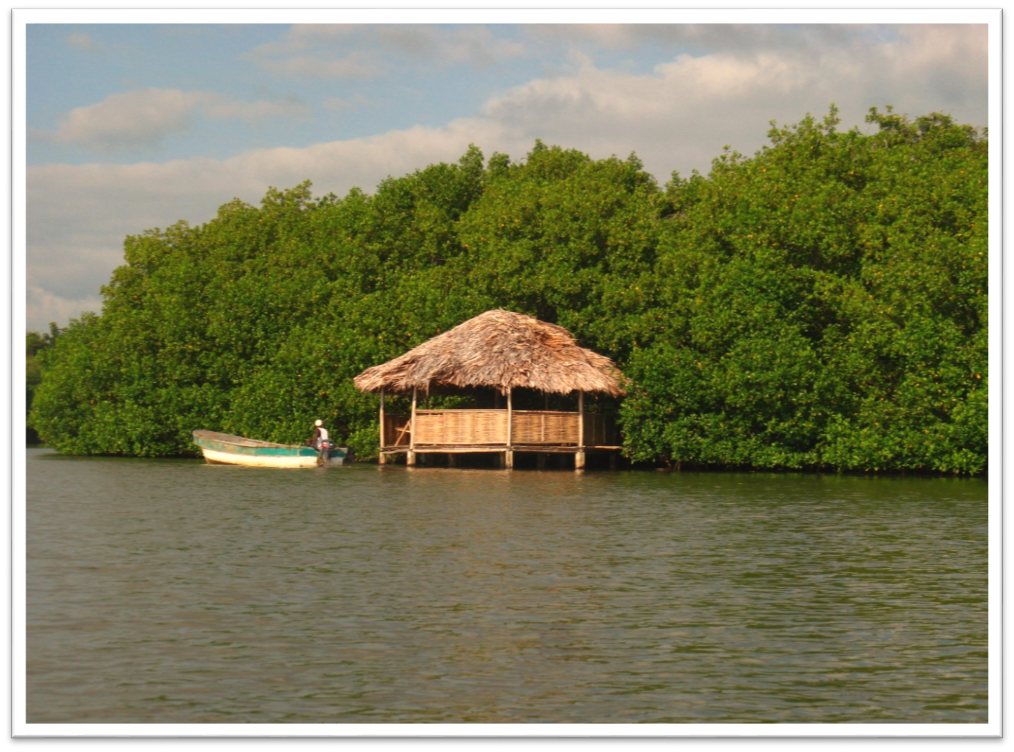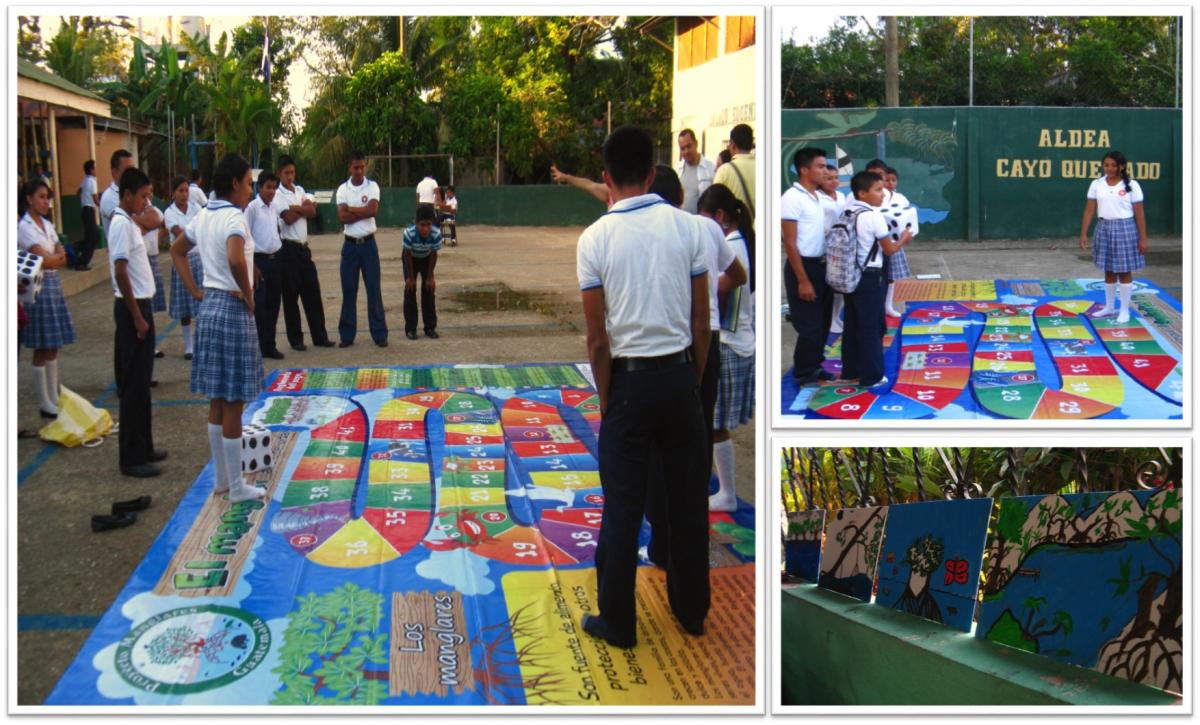My life before ASSAR and ACDI

By Lucia Scodanibbio
Although it often feels so distant, and as though it never existed, I sometimes remind myself of my life before moving back to Cape Town, just over one year ago, to coordinate the Adaptation at Scale in Semi-Arid Regions (ASSAR) project.
It was a busy, sweaty life in the tropics, with a great percentage of my time spent in my office overlooking the cargo ships and cruise liners slowly making their way from Atlantic to Pacific, or vice versa, along the Panama canal. The three-and-a-half years spent there were characterised by activities quite similar to those which I find myself engaged in now with ASSAR – contracting project partners, budgets and finances, reporting and overseeing a large number of activities – interspersed with frequent travel to Guatemala, Honduras and Nicaragua. As a United Nations employee, I would often find myself waving my light blue laissez-passer passport at airport officials, as I went to visit the field sites of the project I coordinated on mangroves and coastal management. Those visits were what made the countless hours spent in front of my computer in the office, worthwhile and bearable.

Image: "The mangrove classroom”, built in Pearl Lagoon in Nicaragua for educational purposes.
Once on the ground, the national project coordinators and I would evaluate the project’s progress and strategise on the way forward. On the Atlantic coast of Nicaragua, which was only reachable by air or waterways, we would go and visit the numerous community-based projects aimed at promoting more sustainable livelihoods for local fishermen, who lived off selling turtle meat or the dwindling fish resources. We hoped that by developing small initiatives linked to ecotourism, honey production and smoking fish, we could reduce the pressure on natural resources. By strengthening business skills, tour guiding abilities and the community members’ technical know-how – in addition to partnering with local NGOs who had a stronger, well-established relationship with the local communities – we yearned for the projects we funded to be sustainable well beyond the end of our externally-financed programme.
On the Caribbean coast of Honduras, beyond dodging stray bullets in one of the areas with the highest proportion of homicides per capita, a significant part of the team’s work time revolved around analysing, documenting and communicating the economic value of the ecosystem services provided by the Jeanette Kawas coastal national park. In order to attempt to reverse the irreverent destruction of mangroves and coastal wetlands for palm oil plantations, marinas, tourism and urban development, it was imperative to show decision-makers that the functions provided by these coastal ecosystems can be valued and that this value is often higher than other land-uses', particularly when social and cultural principles are factored in. In addition to protecting coastlines against hurricanes and storing more carbon than tropical forests, mangroves are the nurseries of fish, prawn and crab species, they act as filters for pollution and sediments, and provide touristic attractions, among many other functions. Training community leaders, municipality workers, forest officers and protected area managers to restore mangroves and calculate how much carbon they stored, were key activities that went hand-in-hand with the more technical studies we were undertaking.
In Guatemala, key stakeholders we consulted at the beginning of the project, all the way from high government officials to community members on the ground, had agreed that it was critical to start with the basics: a mangrove inventory to draw the baseline conditions; livelihood projects; an assessment of the degree to which (agricultural, energy, mining, development, etc.) policies, strategies and plans took mangroves and their ecosystem values into consideration; and education, education and education. Puppet shows, radio soap operas, a 3x2 meter adapted version of snakes and ladders, a calendar based on children’s drawing competitions, a song by a famous local artist, educational materials for the schools, a documentary, presence and games at the Festival of the Sea, and anything else that crossed our minds, seemed like a worthwhile attempt to keep raising awareness of the importance of coastal ecosystems.

Image: Children playing the mangrove snake and ladders game in a school in Cayo Quemado, Guatemala (left and top right), and Children’s masterpieces in the Guatemala drawing competition (bottom right).
The last trip to Honduras – the one that brought together our government partners and national coordinators from the three countries, the Spanish government donor, the deputy director of UNEP, and a number of key beneficiaries of the project, for its official closure – felt like a surreal experience. As the coordinators presented the myriad activities they had implemented in their respective regions, and as we drew lessons learned from the community-based projects, the capacity building activities, the communications work and the studies aimed at influencing decision-makers, it was like observing the efforts, satisfactions, struggles and small victories I had lived in the past couple of years, in fast motion. It had been a rollercoaster, and as I think back to the incredible, remote places I had an opportunity to visit; the amazingly interesting, passionate people I came across who were working on the ground; the terribly challenging experience of coordinating one’s first project with little guidance and so many mistakes to learn from, I can only say that it was maybe one of the most enriching rides I ever took… Or maybe not…? This remains to be seen.
If you’d like to practise your Spanish skills, and learn more about the project, see http://www.pnuma.org/manglares (there are enough colourful pictures to make clicking through the website worthwhile!)
Disclaimer: The views expressed here are solely those of the author in her private capacity and do not in any way represent the views of the ACDI, or any other entity affiliated with the ACDI.